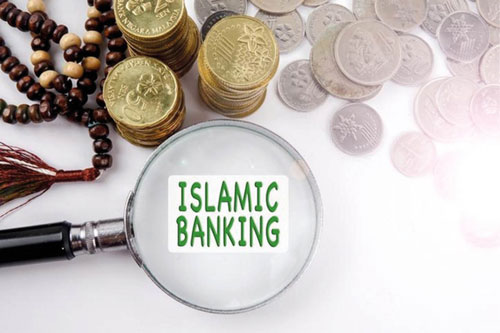The profitability of Islamic banks will improve as provisioning needs decline and net profit margins widen, according to a new report.
“After declining in 2020 when the pandemic first struck, the return on average assets for most Islamic banking systems improved in 2021, partly because of lower provisioning needs as economies recovered,” Moody’s Investors Service said in its latest report.
“We expect provisions to drop back to pre-pandemic levels in 2022-23, further boosting profits. At the same time, rising policy rates will drive up net profit margins. The expansion in net profit margin will be larger in the Gulf Cooperation Council (GCC) states where the central banks follow aggressive monetary policy tightening given that they peg their currencies to the US dollar. Net profit margins are either bottoming or already recovering in 2022,” the report added.
The retail heavy portfolios of Islamic banks will drive higher financing yields and therefore stronger margins than conventional banks, particularly given that current and savings deposits, which are insensitive to interest rates, will continue to make up a large portion of their deposit bases and present little to no pressure on the cost of funds.
With retail lending representing 47.7 per cent of total lending (around 60 per cent of total financing for Islamic banks) and low-cost current and demand deposits at 62.3 per cent of total deposits as of June 2022, Saudi Islamic banks are set to benefit the most from US policy rate hikes, the report said.
Their cost-to-income ratios will remain stable as efficiency gains as a result of digitalisation and shrinking branch networks offset increases in digital spending. Like their conventional peers, Islamic banks will accelerate digitalisation to meet customer preferences for online services and to compete with new digital banks.
Islamic banks will have ample capital and liquidity to expand further strong capital and liquidity buffers will allow Islamic banks to capitalise on strong demand for Sharia-compliant financial services.
The strong capitalisation of Islamic banks will be supported by profitability improvements.
While organic growth capacity remains ample for Islamic banks, the inorganic expansion will remain a recurring credit theme, particularly in the GCC where bank consolidation continues. Also, Islamic banks have ample liquidity to support their expansion thanks to strong inflows of deposits.
Moody’s Investors Service in the report said that high commodity prices and the easing of pandemic restrictions will support strong economic recovery across major Islamic finance markets over the next 12 to 18 months, boosting the financial performance of Islamic banks. The Gulf states, Malaysia (A3 stable) and Indonesia (Baa2 stable) are benefiting from a price surge in key exports like hydrocarbons and palm oil.
The economic rebound will keep the asset quality of Islamic banks stable while driving up profitability. Islamic banks can therefore maintain strong capital and liquidity buffers, enabling them to capitalise on the growing demand for Shariah-compliant financial services.
Islamic finance markets are benefitting from high commodity prices. The economic growth of countries in the GCC, Malaysia and Indonesia is accelerating in 2022 and will remain strong in 2023, driven by the easing of pandemic restrictions and the high prices of commodities such as hydrocarbons and palm oil. Inflation in these countries will also remain moderate because of government subsidies and policy rate hikes.
Strong economic recovery will keep the asset quality of Islamic banks stable. Improving economic conditions will keep the performance of Islamic financing stable despite the unwinding of regulatory forbearance. The focus on retail financing will support asset quality because of its secured and diversified nature and prudent underwriting by the Islamic banks, the report said.
In addition, financing to public-sector employees, who enjoyed stable employment during the pandemic, constitutes the lion’s share of retail financing in the GCC region. Strong provisioning buffers built up during the pandemic will also mitigate asset risks.—Zawya News










